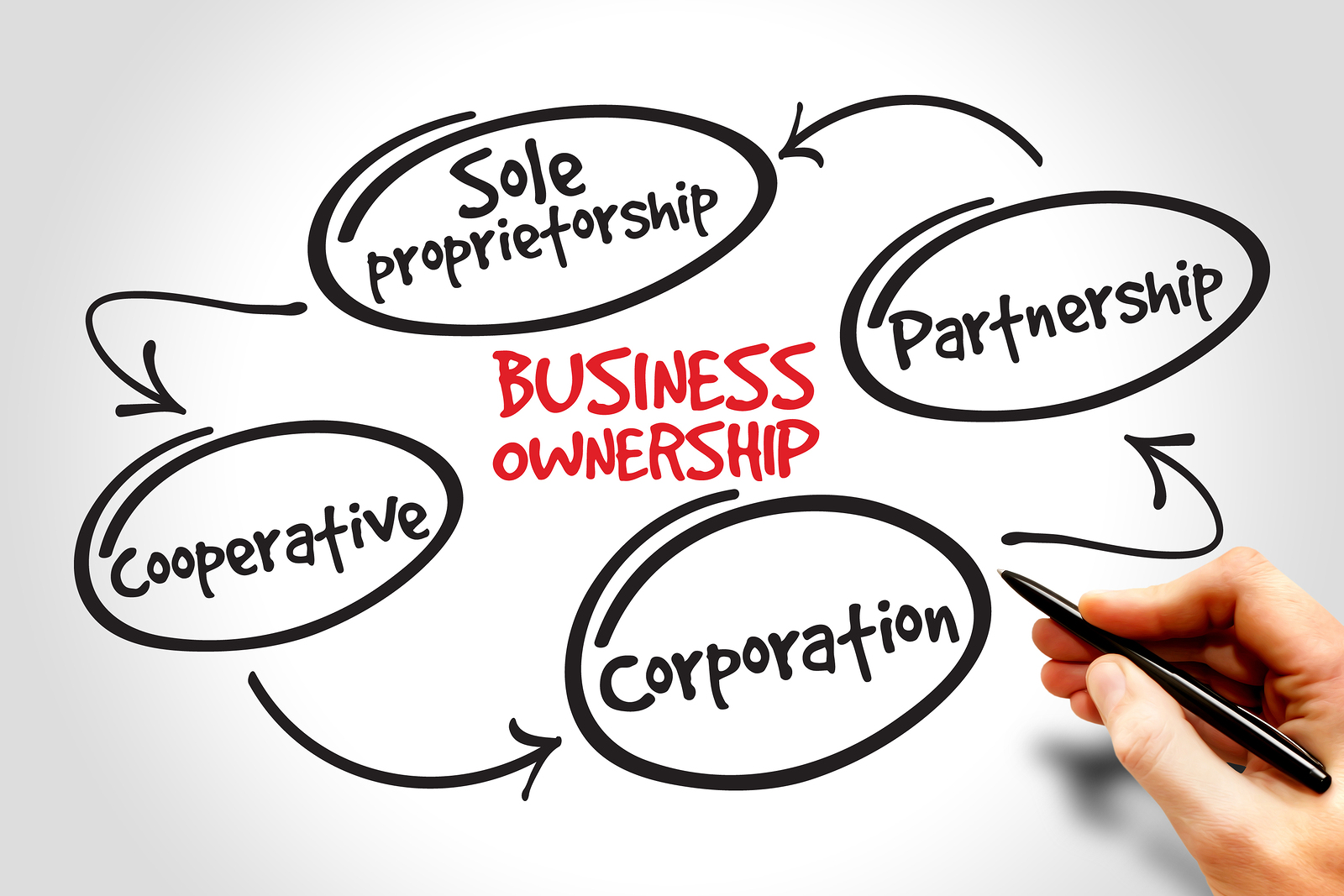
This is the most common business structure. It’s easy to form and it offers owners complete control. The downside? The owner is personally responsible and liable for all financial obligations of the business. If you get sued and lose, they can come after your house, your personal bank account and any other assets you have.
2) Partnership
A partnership is formed when two or more people agree to share the financial responsibilities of a business. All profits and losses are “passed through” to the partners and reported on individual tax returns. Like sole proprietorships, each partner can be held personally liable for financial obligations—which may or may not work well for you.
3) C or S Corporation
When you incorporate, you separate your personal finances from your business finances, which is important to a lot people. Yet the powers that be at the IRS don’t necessarily make that easy. Forming a corporation can be costly and time-consuming. In addition, once you are recognized as a corporation, you have to play by a whole new set of rules—including having board members, shareholder meetings, payroll, and a substantial fee to pay every year just to maintain your corporate status—even if you’re the only employee of your corporation.
4) Limited Liability Company (LLC)
As a Limited Liability Corporation, owners are able to take advantage of the benefits of both the corporation and partnership forms of business. Profits and losses can be passed through to owners without taxation of the business itself. And owners are shielded from personal liability. Sounds great, right? Well, hold on there for a minute, you need to see the whole picture. LLC’s also can limit your growth potential. For example, if you want to secure investors you’ll have to come up with some creative ways to attract them, because you cannot issue shares of stock, (goodbye Shark Tank). Furthermore, self-employment and appreciated asset taxes can be high—just to name a couple of things.
In order to determine which entity is right for you, you’ll want to consider the following:
- Do you need to be protected from legal liability? The more high risk your business is, the more likelihood the answer to this question is, yes.
- To what extent are you willing and able to cover any financial responsibilities with personal assets?
- Are you making enough to justify the cost of incorporating and maintaining corporate status?
- Do you want to assume complete control of all business decision or do you want to share that responsibility?
- What do you envision your business will be like in 5, 10 or 15 years?
- What do you want to happen with your business if you die or decide to sell?
- Who will take over your business if you find yourself unable to work, either temporarily or permanently?
There’s more to all of this, but this is enough to get you started! The bottom line is that your business is unique and there is no one who knows your wants, needs, and crazy dreams better than you. Take the time you need to truly evaluate all the factors surrounding your finances, before deciding how you’ll structure your business. And for better guidance, get a comprehensive Tax Plan from a Certified Tax Planner near you!






